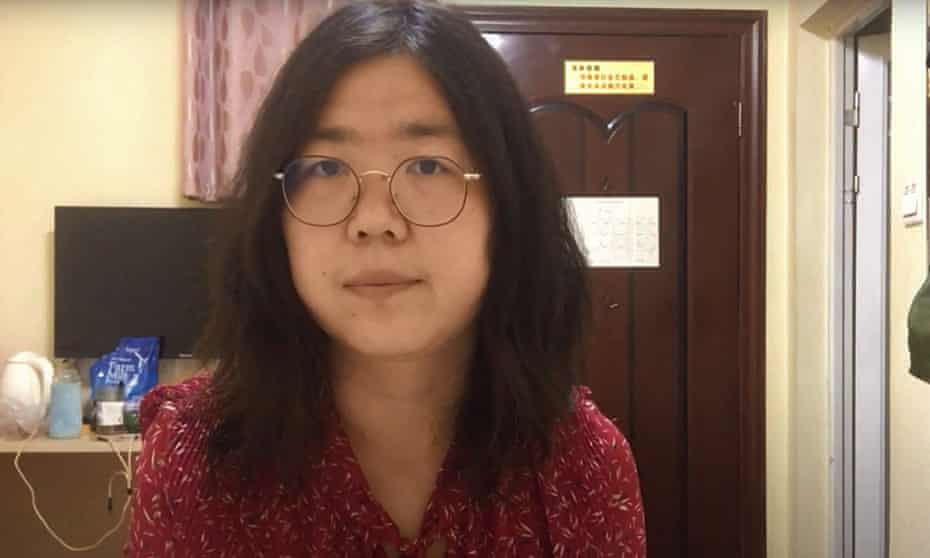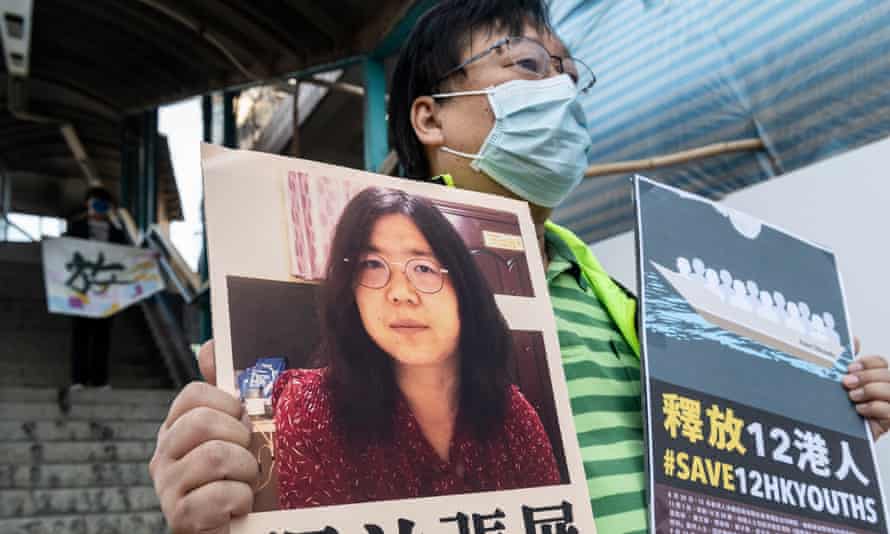
FILE - In this Oct. 15, 2014, file photo, University of Florida President-elect W. Kent Fuchs speaks during a press conference at Emerson Alumni Hall in Gainesville, Fla. Reversing its previous position, the University of Florida said Friday, Nov. 5, 2021, that it would allow professors to testify as experts in a lawsuit challenging a new state law that critics say restricts voting rights. In a letter to the campus, President Fuchs said he is asking the office responsible for approving professors’ outside work to reverse the recent decision rejecting the professors' request to serve as expert witnesses in litigation involving the state of Florida.
(Doug Finger/The Gainesville Sun via AP, File)
ORLANDO, Fla. (AP) — Reversing its previous position, the University of Florida said Friday that it will allow three professors to testify as experts in a lawsuit challenging a new state election law that critics say restricts voting rights.
Last month, the university prohibited Dan Smith, Michael McDonald and Sharon Austin from testifying in the lawsuit brought by civic groups, saying that such testimony would put the school in conflict with the administration of Florida Republican Gov. Ron DeSantis, which pushed the election law. More than half of the university’s trustees are appointed by the governor.
In a letter to the campus, university president Kent Fuchs said he is asking the office responsible for approving professors’ outside work to greenlight their request to serve as expert witnesses in the litigation. Fuchs said the outside work would have to be on the professors’ own time and not use university resources.
Attorneys representing the professors said they were still planning to move forward with a lawsuit against the university.
“Despite reversing the immediate decision prohibiting the Professors from testifying, the University has made no commitment to abandon its policy preventing academics from serving as expert witnesses when the University thinks that their speech may be adverse to the State and whatever political agenda politicians want to promote,” David O’Neil and Paul Donnelly said in a statement. “It is time for this matter to be rightfully adjudicated, not by press release, but in a court of law.”
The university’s announcement came after the union for faculty members urged donors to withhold contributions and scholars and artists to turn down invitations to campus until university administrators affirmed the free speech rights of school employees.
Not allowing them to testify would be “an attack on all of us,” said Paul Ortiz, a history professor who is president of the union chapter at the university.
Hours later, after hearing about the reversal, Ortiz called the announcement, “a really positive step forward,” and said the union chapter’s executive committee will meet to decide how to proceed.
“I’m delighted to see this,” Ortiz said. “We want some kind of guarantee that this isn’t going to be on a case-by-case basis — if another faculty member says, ‘I want to engage in this type of activity,’ that we aren’t going to end up back in the same place.”
The union also had asked the university to issue an apology, affirm its support for voting rights and declare that the school’s mission is for the public good.
Fuchs and Provost Joe Glover said in a letter to the campus community earlier this week that the school will immediately appoint a task force “to review the university’s conflict of interest policy and examine it for consistency and fidelity.” On Friday, Fuchs said a preliminary recommendation will be ready by the end of the month.
Also this week, the Southern Association of Colleges and Schools’ Commission on Colleges told news outlets the organization planned to investigate the university’s previous decision to prohibit the professors from testifying.
The University of Florida’s president answers to its board of trustees, which has six members appointed by the governor and five appointed by the state university system’s board of governors. The board of governors, in turn, has 17 members, 14 of whom are appointed by the Florida governor and confirmed by the state Senate. These offices have been in Republican hands for many years.
In a statement this week, DeSantis’ office denied being behind the decision to block the faculty members’ testimony, and on Friday his press secretary, Christina Pushaw, tweeted that any such suggestion was “absurd.”
Florida Democratic elected officials, many of whom attended the University of Florida, were critical of the university’s initial rejection of the professors’ requests, tying it to other controversial recent decisions by the school, such as the quick hiring of DeSantis’ pick to be Florida’s surgeon general. Dr. Joseph Ladapo recently came under fire for refusing to don a mask at a meeting with a lawmaker who was being treated for cancer.
“The rapid reversal of this ill-advised policy will restore the pride and integrity of the Gator Nation of which I am so incredibly proud,” Democratic U.S. Rep. Debbie Wasserman Schultz said in a statement. “Go Gators!”
___
Follow Mike Schneider on Twitter at https://twitter.com/MikeSchneiderAP
ORLANDO, Fla. (AP) — Reversing its previous position, the University of Florida said Friday that it will allow three professors to testify as experts in a lawsuit challenging a new state election law that critics say restricts voting rights.
Last month, the university prohibited Dan Smith, Michael McDonald and Sharon Austin from testifying in the lawsuit brought by civic groups, saying that such testimony would put the school in conflict with the administration of Florida Republican Gov. Ron DeSantis, which pushed the election law. More than half of the university’s trustees are appointed by the governor.
In a letter to the campus, university president Kent Fuchs said he is asking the office responsible for approving professors’ outside work to greenlight their request to serve as expert witnesses in the litigation. Fuchs said the outside work would have to be on the professors’ own time and not use university resources.
Attorneys representing the professors said they were still planning to move forward with a lawsuit against the university.
“Despite reversing the immediate decision prohibiting the Professors from testifying, the University has made no commitment to abandon its policy preventing academics from serving as expert witnesses when the University thinks that their speech may be adverse to the State and whatever political agenda politicians want to promote,” David O’Neil and Paul Donnelly said in a statement. “It is time for this matter to be rightfully adjudicated, not by press release, but in a court of law.”
The university’s announcement came after the union for faculty members urged donors to withhold contributions and scholars and artists to turn down invitations to campus until university administrators affirmed the free speech rights of school employees.
Not allowing them to testify would be “an attack on all of us,” said Paul Ortiz, a history professor who is president of the union chapter at the university.
Hours later, after hearing about the reversal, Ortiz called the announcement, “a really positive step forward,” and said the union chapter’s executive committee will meet to decide how to proceed.
“I’m delighted to see this,” Ortiz said. “We want some kind of guarantee that this isn’t going to be on a case-by-case basis — if another faculty member says, ‘I want to engage in this type of activity,’ that we aren’t going to end up back in the same place.”
The union also had asked the university to issue an apology, affirm its support for voting rights and declare that the school’s mission is for the public good.
Fuchs and Provost Joe Glover said in a letter to the campus community earlier this week that the school will immediately appoint a task force “to review the university’s conflict of interest policy and examine it for consistency and fidelity.” On Friday, Fuchs said a preliminary recommendation will be ready by the end of the month.
Also this week, the Southern Association of Colleges and Schools’ Commission on Colleges told news outlets the organization planned to investigate the university’s previous decision to prohibit the professors from testifying.
The University of Florida’s president answers to its board of trustees, which has six members appointed by the governor and five appointed by the state university system’s board of governors. The board of governors, in turn, has 17 members, 14 of whom are appointed by the Florida governor and confirmed by the state Senate. These offices have been in Republican hands for many years.
In a statement this week, DeSantis’ office denied being behind the decision to block the faculty members’ testimony, and on Friday his press secretary, Christina Pushaw, tweeted that any such suggestion was “absurd.”
Florida Democratic elected officials, many of whom attended the University of Florida, were critical of the university’s initial rejection of the professors’ requests, tying it to other controversial recent decisions by the school, such as the quick hiring of DeSantis’ pick to be Florida’s surgeon general. Dr. Joseph Ladapo recently came under fire for refusing to don a mask at a meeting with a lawmaker who was being treated for cancer.
“The rapid reversal of this ill-advised policy will restore the pride and integrity of the Gator Nation of which I am so incredibly proud,” Democratic U.S. Rep. Debbie Wasserman Schultz said in a statement. “Go Gators!”
___
Follow Mike Schneider on Twitter at https://twitter.com/MikeSchneiderAP













